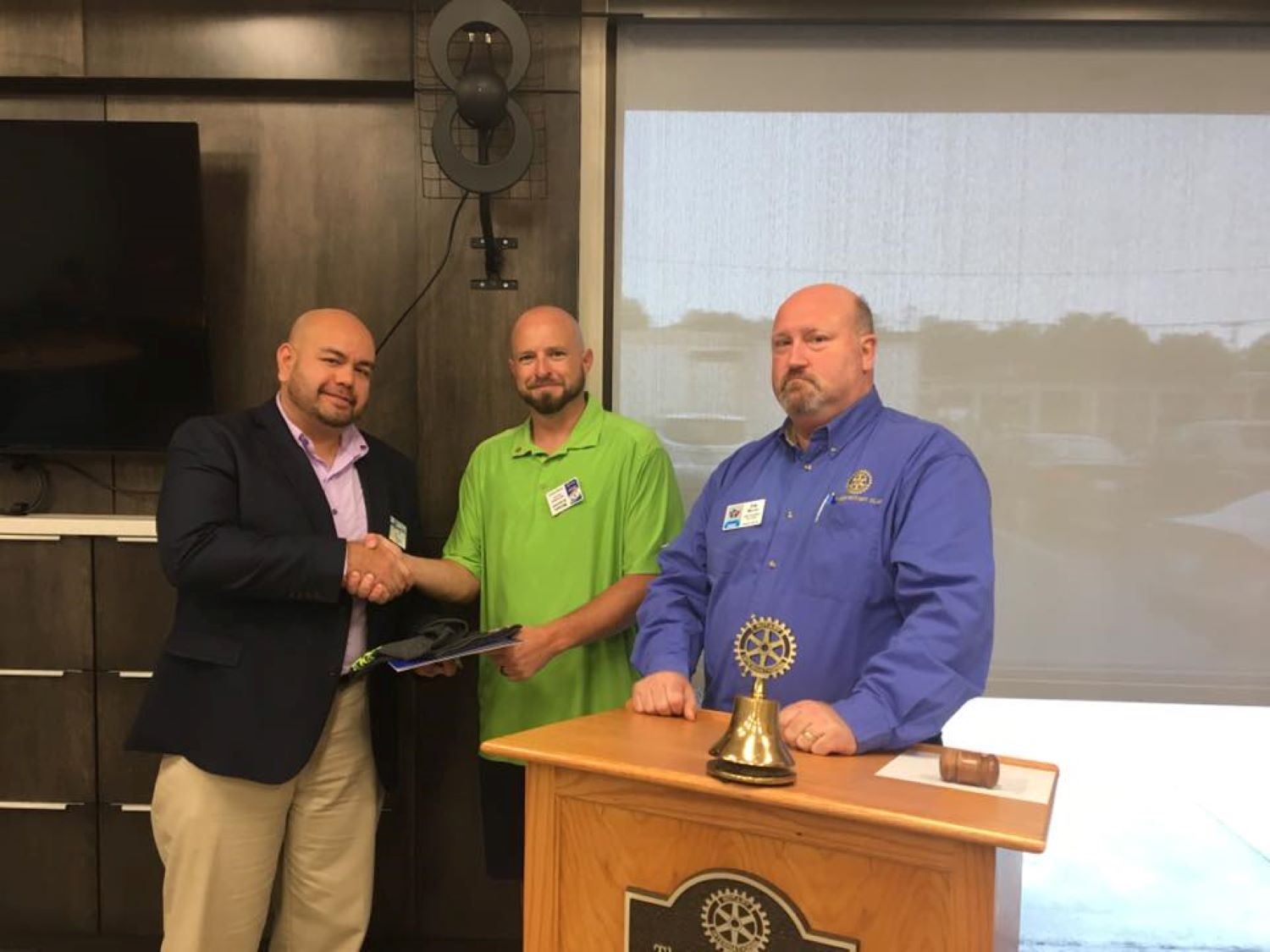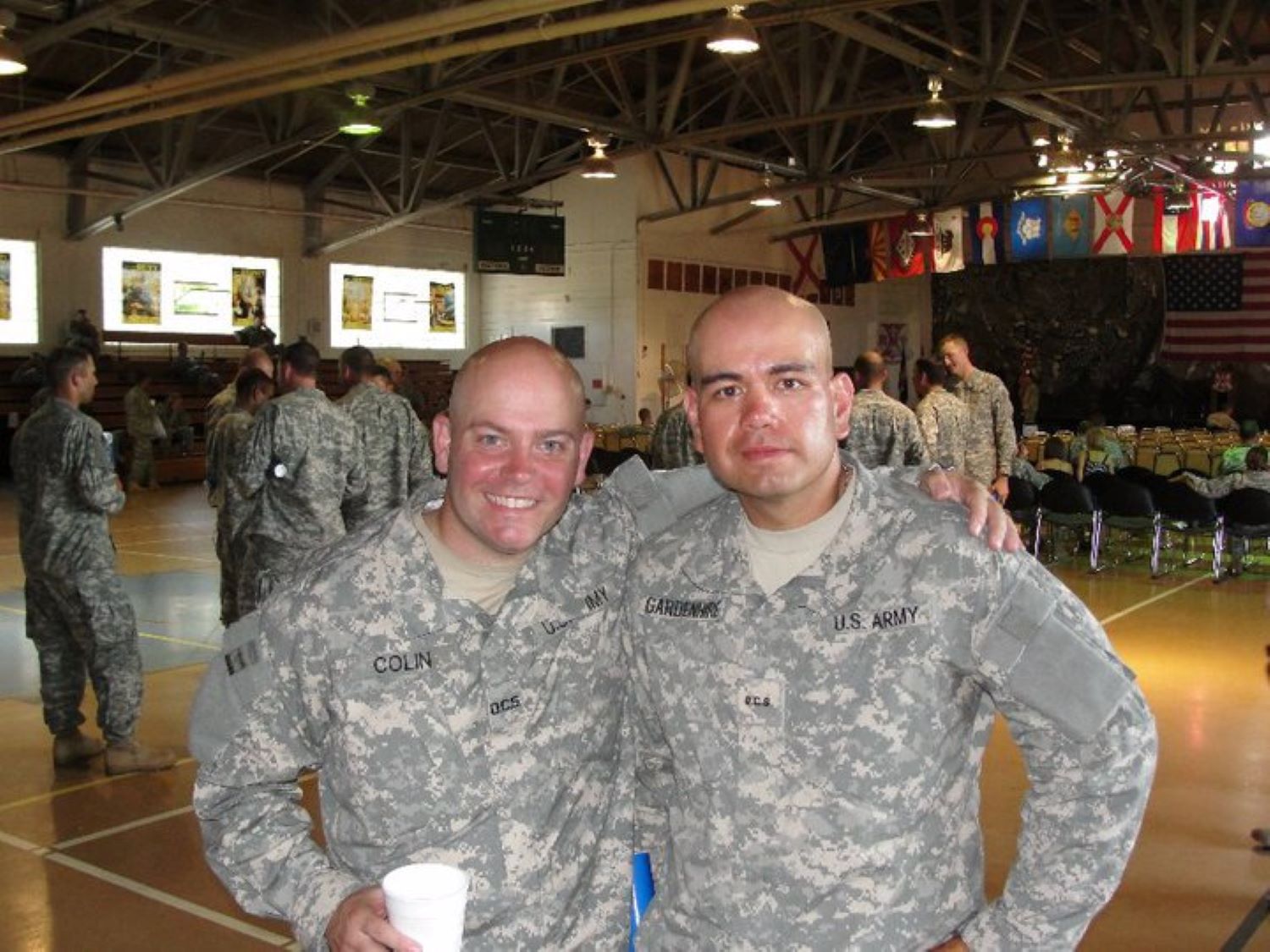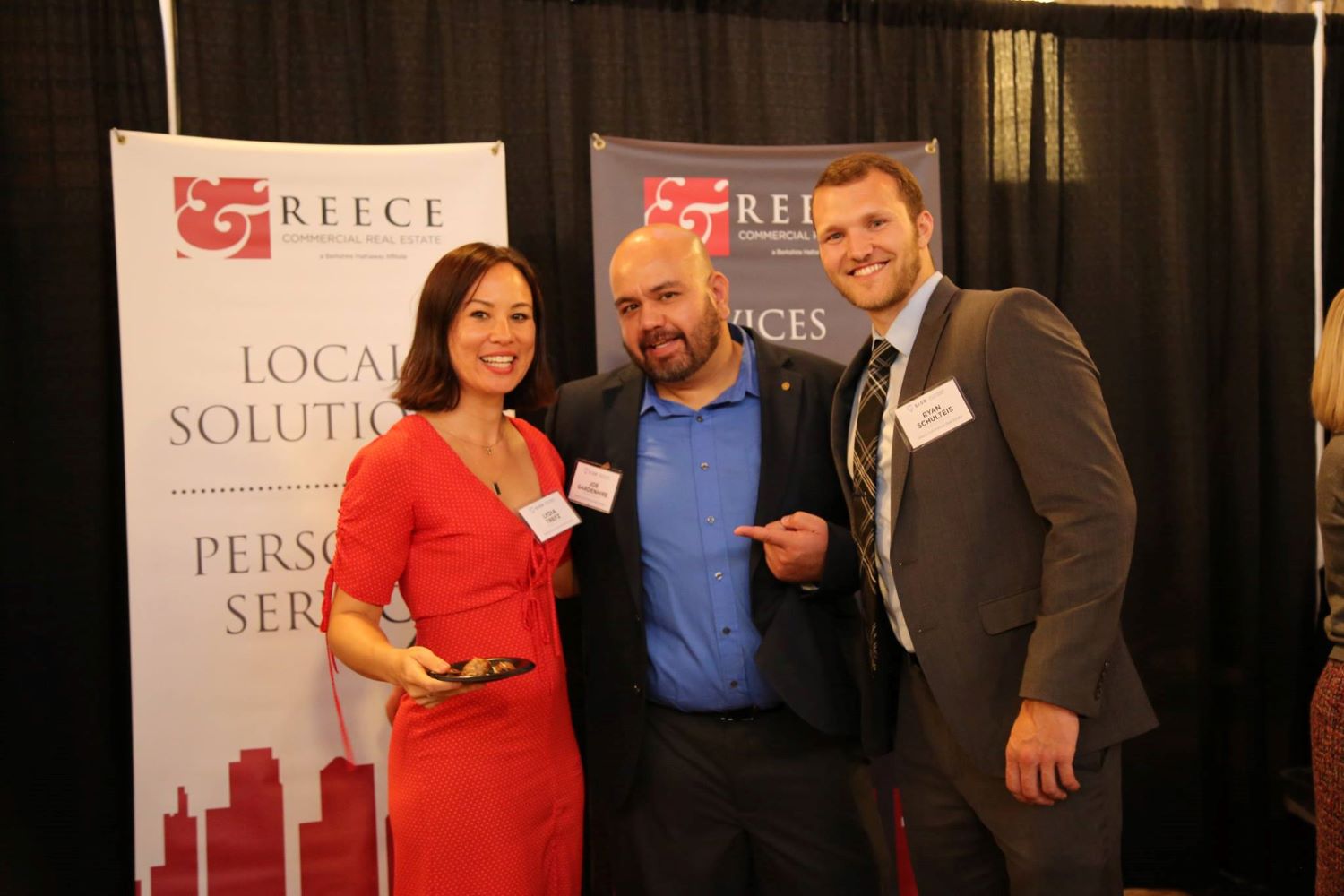How Joe Gardenhire Built a Passive Income Through Government Contracts
Government contracts are difficult to get; that’s a fact. However, this is often the case when government contractors, especially new ones, approach the game without a good strategy. This leads to scenarios where some companies take years to secure their first contracts.
On average, it takes people 18 to 24 months to secure their first contract. Even so, it doesn’t mean that government contractors can’t secure contracts faster than that average. Take Joe Gardenhire, the owner of JJG Commercial, for example. He joined the race in 2024 and has been able to generate a steady income in just 4 or 5 months.
Some people might think he must be well-seasoned to achieve this, and he is. Still, on a podcast episode with Kizzy Parks, he shared that the strategy he used to approach government contracts is simpler than we ever thought. That’s the main point of this article, but let’s get to know him first.
Joe Gardenhire – A Service-Disabled Veteran Take on Government Contracts
Joe Gardenhire has owned many businesses, experiencing both successes and failures. About four or five years ago, he became a commercial real estate agent, seeking a long-term, passive income source. However, this venture didn’t meet his expectations.
After a car accident three years ago, which affected his ability to do physical work, he sought alternative income methods. He had a successful Amazon business but wanted to avoid physical labor.
He recalled, “I did have a successful Amazon business, but that required me to go shopping, buy stuff on clearance, box it up, pack it up, and ship it out. That was something I was trying to get away from. I was trying to move away from the physical aspect of work because, about three years ago, I was in a car wreck and messed up my back. Doing physical labor really wasn’t in the cards for me anymore, so I kept looking for something better to do.”

In 2024, Joe accidentally came across a few government contractors sharing content on YouTube. Inspired by their videos and leveraging his status as a service-disabled veteran, he transformed his existing commercial real estate business, JJG Commercial, into a government contracting business.
How He Gained Experiences – Stick with Smaller Jobs When You’re Just Starting
Joe worked backward from his goal of managing government construction projects. Currently pursuing a master’s degree in construction management, he aims to create a joint venture with a large construction company, leveraging his SDVOSB (Service-Disabled Veteran-Owned Small Business) status and their experience. However, jumping straight into large projects requiring substantial bid bonds wasn’t feasible.
To gain experience, Joe focused on smaller jobs, particularly with the VA, which prioritizes contracts for SDVOSBs. After obtaining his CAGE code in about four weeks, he noticed a recurring contract for a specific type of cleaning that no one seemed to win. The contracting officer’s frustration was evident in the bid instructions.
Joe siad, “As I was getting my CAGE code, which took about four weeks from start to finish—I started in April, and by May, I was fully registered—I was looking at opportunities. One contract kept popping up every couple of weeks, and I kept wondering, ‘How come nobody’s winning this bid?’ You could tell by the way the contractor was writing it that they were getting frustrated. They were putting things in caps like READ THIS SECTION, and I thought, ‘Hmm.’”
He further explained, “Basically, nobody was answering the questions correctly. It was a contract for a specific type of cleaning where they had to get into hazmat gear and clean. I found a local company that does that. They had bid on the same contract with another contractor previously, but apparently, they didn’t win because it was resubmitted with highlighted areas and caps. You could tell the contracting officer was getting frustrated because people weren’t answering the questions.”
Joe finally decided to take a crack at it. He found a local company with the required experience and used their credentials to answer the bid questions correctly. Despite the company’s initial reluctance to share their client history, Joe convinced them of its necessity. His thorough response led the contracting officer to award him a sole-source contract, as no other bidders met the requirements.
“Eventually, after a few conversations, they opened up to me. I turned everything in, and it became a sole-source contract because no one else answered the questions,” Joe said.
You Can Submit Your FSC Registration Form Early—Even Before You Have a Contract
In his first award, Joe realized the officer likely wanted to award him the contract but needed to get him into the Tungsten Network system first, which took about four weeks.
Joe needed to be registered in the Tungsten Network system because it is used for electronic invoicing and payment processing. Many government agencies and large companies require vendors to use Tungsten Network to ensure secure, compliant, and efficient transactions.
He also needed to register with the FSC (Financial Service Center) system, a key part of the Department of Veterans Affairs (VA) that manages financial services, including vendor payments and other transactions. This system ensures that vendors are properly registered and eligible to receive payments for their services.

During this period, Joe regularly checked in with both the FSC in Texas and the contracting officer, ensuring he stayed updated on the process. And once he was in the system, the contract was awarded to him.
This is why Joe advised new contractors that wanting to work with the VA to submit the FSC form early, even without a contract.
By submitting the FSC form early, new contractors can complete the registration process in advance. This way, when a contracting officer is ready to award a contract, they don’t have to wait an additional four to six weeks for the contractor to be registered. It streamlines the process, allowing for quicker contract awards once everything is in place.
He explained, “So, if you are wanting to work at the VA, my number one thing is: you can turn in that FSC sheet early—you don’t have to have a contract. It’ll take them four to six weeks to get you registered. Then, you’re in the system, and at that point, the contracting officer can click a couple of buttons and make the contract.”
Joe also shared that he likely missed out on winning another contract because he wasn’t registered in the necessary system in time. He was confident that his bid was the lowest, as it was estimated to be about $10,000 less than others due to his local advantage.
However, the contract required completion within a specific timeframe, and since he wasn’t registered in the system, the contracting officer couldn’t award him the contract. Joe believes that if he had been registered, he would have won the $130,000 kitchen reset contract for the local VA.
“So, I’m about 90% sure if I had been registered in the system, I would have also won that $130,000 kitchen reset for the local,” he stated.
The Beauty of Joint Venture Program – Riding the Coattails of Giant Companies
Joe is planning to pursue a joint venture program. He is working through his connections in the commercial real estate world to form a joint venture with a large construction company. This would allow him to leverage his SDVOSB status and gain valuable experience from the larger company.
“Because I’m getting my master’s degree in construction management, I can sign with a large construction management firm as a joint venture. The joint venture means that they are my mentor, and I’m their mentee. For the next six years, they get to use my small business, disabled veteran-owned small business designation, and I get to use their experience on the condition that they mentor me in how to do construction management,” he said.
According to Joe Gardenhire, teaming up with a big construction company for government contracts has some awesome perks. You can save a ton on bid bond costs, making it cheaper to bid on big projects. Plus, you get to learn the ropes from the pros, which is super helpful. With their experience and resources, your chances of winning contracts go way up.
He further elaborated, “That’s something you have to have if you’re starting out in government contracting for construction projects. The bid bond is a reflection of your risk. If you have a large construction company with hundreds of millions of dollars in experience and has actually done government contracts before, or been a subcontractor for large contracts, then you have that work experience. Your bid bond may go from 4% of the total project value to maybe 1.5%, which could save you hundreds of thousands of dollars on a $10 million or $5 million project.”
When Joe this kind of partnership, he wants to ensure he is the only SDVOSB mentee for the company to avoid competition and create a strong partnership.
If You Are a Disabled Veteran, Focus on SDVOSB Contracts
As a disabled veteran, Joe truly understands how to leverage his status in his career. When searching for government contracting opportunities, he uses saved searches on the SAM (System for Award Management) website to focus on VA (Veterans Affairs) contracts and SDVOSB (Service-Disabled Veteran-Owned Small Business) opportunities.
He has three main searches: one for VA pre-solicitations, one for SDVOSB opportunities within the VA, and one for all SDVOSB opportunities.

Joe prefers SDVOSB set-asides because there is typically less competition compared to regular small business set-asides.
For example, he mentioned that a contract he won had only two qualified bidders out of nine, whereas regular small business set-asides can have up to 70 bids. This lower competition increases his chances of winning contracts.
He shared, “I’ve asked contractors on bids I’ve lost how many people bid, and they said there were 70 bids for regular small business set-asides. For example, the second contract I won, they called me to hash out some things in the contract. We discussed whether extra cleanings would be part of the contract or done through a contract amendment, and I clarified that it would be done through a modification, which added $130,000.”
He added, “In that conversation, they mentioned that nine people had bid on the contract, but they were disqualified for not meeting the requirements, leaving only two of us who met the criteria.”
Following All the Requirements is Crucial
Joe thinks contract requirements are often purposely complicated to limit the number of applicants. For instance, many small businesses might not have the right insurance, like janitorial insurance. Joe got his through Next Insurance, which was quick and easy, just to meet the requirements for a second bid.
He stresses the importance of providing solid details, like proof of past experience. Even if you’re new to the business, you should still include something—like info on any subcontracting work you’ve done. Joe uses a clear template for proposals, making sure he addresses every part of the statement of work in detail. It might end up being a long document, kind of like writing a book report, but it’s crucial for landing contracts.
He expressed, “You literally go dot by dot on every statement of work and answer the question, and you end up with 20 or 30 pages when you’re done with your proposal. Some people don’t realize it’s like writing a book report. I hated writing book reports, and it’s ironic that I’m doing this. But you end up with about 20 pages answering all the questions on what would seem like a simple contract. You’re not just turning in, ‘Oh, hey, I can do this for this price.’”
Joe Gardenhire’s Advices for Newcomers
If you are new to the field and don’t know where to start, obtaining a CAGE (Commercial and Government Entity) Code is essential for government contractors. Once you have this, the first thing you need to do is start submitting bids.
Commit to Submitting Bids!
Joe’s first piece of advice to others is to commit to submitting one bid within two weeks of obtaining your CAGE Code.
“Once you get your Cage Code, commit to submitting one bid within two weeks. Just force yourself,” he emphasized.
As you navigate the bidding process, you’ll inevitably come across things that are unclear. When that happens, Joe recommends taking the time to research and learn.
Research and Learn!
Joe advises people to start by Googling everything—there’s a wealth of information available online. If you don’t find what you’re looking for, or if the information is conflicting, turn to YouTube for more in-depth explanations. Before long, many of your questions will be answered.
For instance, you might wonder, “How do I get paid by the VA?” You’ll learn that they use the FSC system, as shared by Joe Gardenhire.
“You start going down these rabbit holes, and you’ll be surprised how much you learn,” he stated.
He continued, “I think Alex Hormozi says that 27 hours of work in a field makes you more proficient than 95% of the population in that field. So, just spend 27 hours Googling questions that pop into your head. This will make you proficient enough, not an expert, but proficient.”
Stop Overthinking and Just Do It!
Joe’s third advice is to stop overthinking and just get started.
“Doing is so much better than gamifying it or overthinking it with ‘What if?’ questions. When you actually get down to it, most of those ‘What ifs’ weren’t really questions you needed to answer,” he believes.
Instead of worrying about all the “What if?” questions, dive into the RFQ (Request for Quote) and do your best to answer it. Aim for a solid 15 to 20-page proposal to make sure you’ve covered everything. Once you’re done, submit it right away. Joe points out that many people waste time thinking and waiting, but it’s way better to just take action and learn as you go.
He stated, “Stop thinking about it—just do it!”
The First Thing to Do after Winning a Contract – Contact the COR
According to Joe Gardenhire, after winning a contract, the next steps aren’t always clear and aren’t often discussed. He figured out on his own that the first thing to do is identify and contact the Contracting Officer Representative (COR). The COR is the person who either is or works with the individual requesting the service.
Joe advises reaching out to the COR immediately after winning the contract to set up a meeting. This helps clarify the next steps and ensures everyone is on the same page.

“I always do it within minutes of getting an award. I immediately email them and say, ‘Hey, I’ve been awarded this contract for this service. I would like to set up a time to conference call with you and my subcontractor. What are some good times for you on Wednesday?’ Then I shoot that email off, and they usually shoot one back. You meet with them at whatever specific time, and then you set up your first service,” Joe explained.
Make Sure You Choose a Good Subcontractor
Have a good subcontractor is very crucial, as stressed by Joe Gardenner. They’re the ones doing the actual work, so you need someone reliable and experienced. This is where the client (Contracting Officer Representative, or COR) gets their confidence from.
” So, basically, I would always kick off the meeting, introduce myself, introduce my subcontractors, and you know, and then I would basically hand it off to them because they start getting into things, you know, they’re talking about requirements for, you know, this type of cleaning and solvents and agents,” he elaborated.
The first call with the COR was super important. Your subcontractor needed to impress them with their knowledge and expertise. The goal was to make the COR’s life easier by solving their issue. A good subcontractor who could suggest solutions and handle the details helped a lot.
He expressed, “And so, that subcontractor has to go in there and wow them, like, ‘Yes, I know that type of cleaning agent, have you thought about this type of cleaning agent?’ Like, they have to be on the ball, because they are literally looking at you as like, ‘Okay, you’re here to solve this problem, and if the headache that I have goes away, then I’m going to love you forever.'”
Joe also mentioned that your subcontractor needed to know their stuff. He almost partnered with someone inexperienced but decided against it because he wasn’t sure they could meet the standards.
Be Ready For a Yes!
When bidding for contracts, many people don’t prepare for the scenario where they receive a ‘yes.’ This is when they find themselves facing tasks that could have been addressed ahead of time.
This is why Joe advised others to always be prepared for a positive response when bidding for contracts.
First, expect a “yes.” While you might get used to hearing “no,” you should always be ready for a “yes.” This means having everything prepared in advance so you can move quickly when you get a positive response.
Next, organize your information. Have a spreadsheet ready with all the details of the service you’re offering. Highlight the areas where you need the subcontractor to input their bid. This could include tasks like floor scraping, room cleaning, or trash removal. This way, the subcontractor knows exactly what they are bidding on.
You also need to provide detailed documents. Prepare a separate PDF with the full statement of work. This document should include all the specific requirements and details of the job. When a subcontractor asks for more information, you can quickly send them this PDF along with the spreadsheet. This ensures they have all the information they need to give an accurate quote.
Finally, be ready to send information. Before you even make a call to discuss a bid, have all your documents ready. This way, if someone says they’re interested, you can immediately email them the necessary information while you’re still on the phone. This level of preparedness shows professionalism and can help you secure the contract.
He explained, “Before you even call, if you’re like, ‘Hey, I want to bid on this,’ have your cleanse and everything in a spreadsheet with where you want the subcontractor to fill their stuff out, and then a separate PDF with the statement of work, and then you’re ready for when someone says, ‘Okay, I’ll take a look at it,’ then you can send it.”









